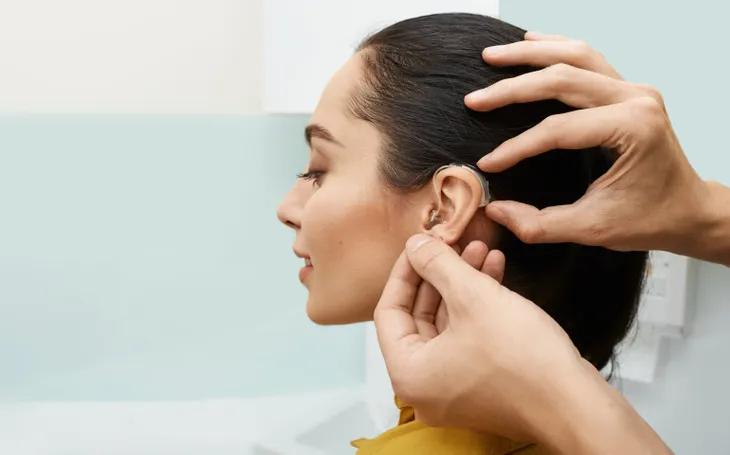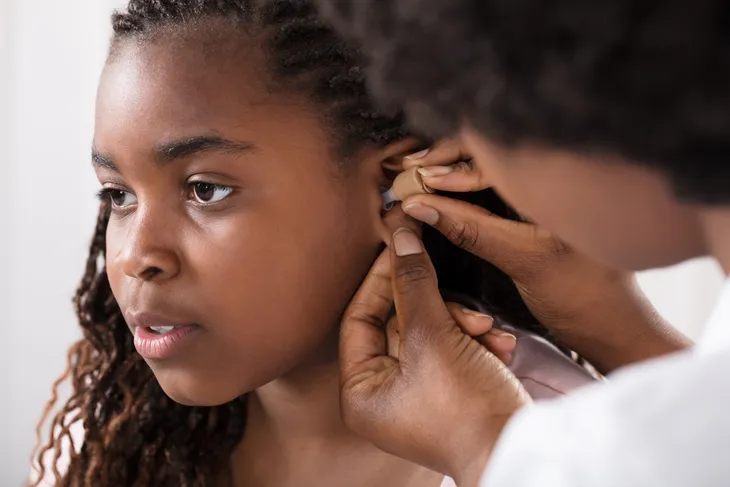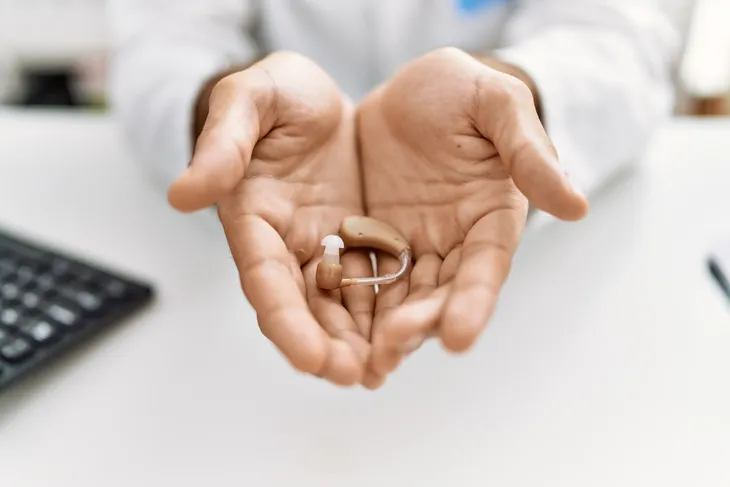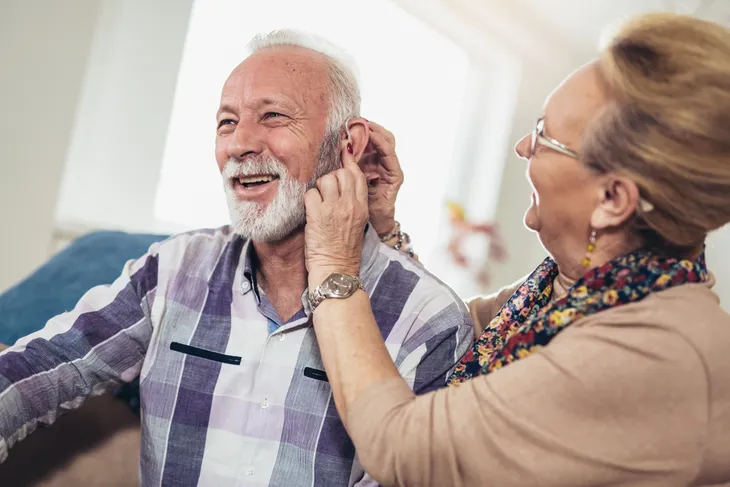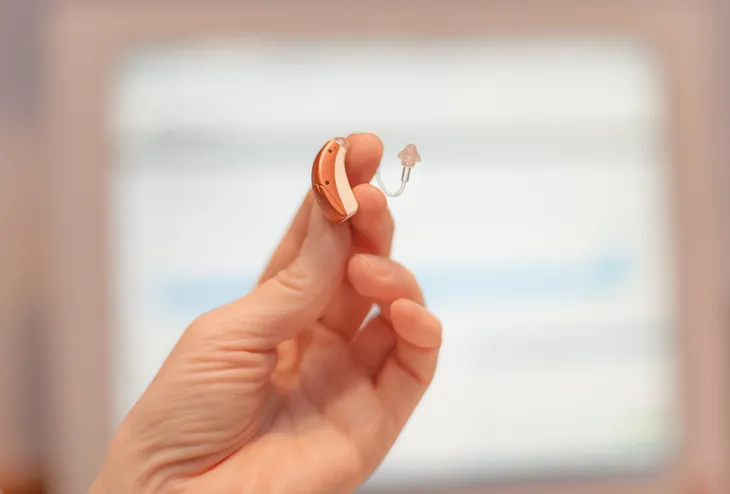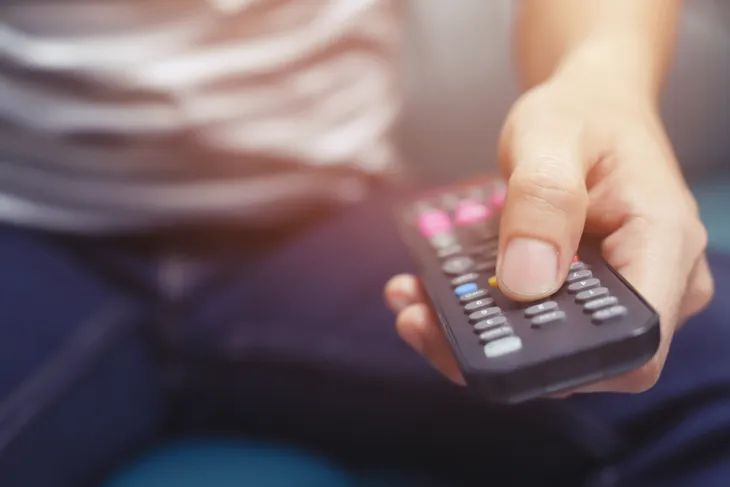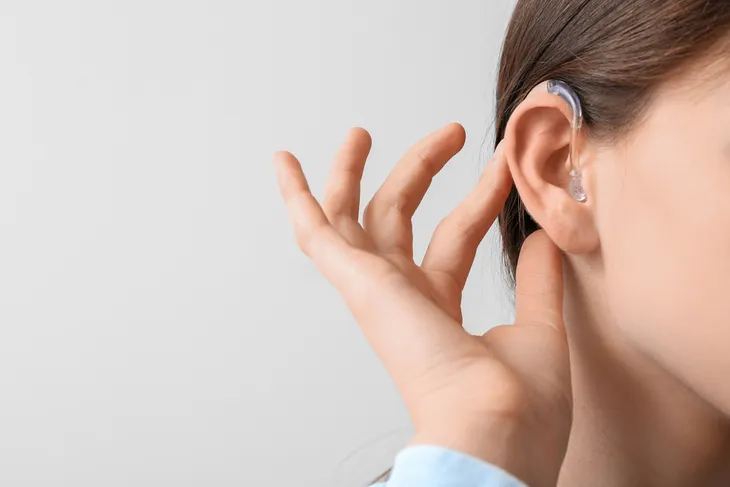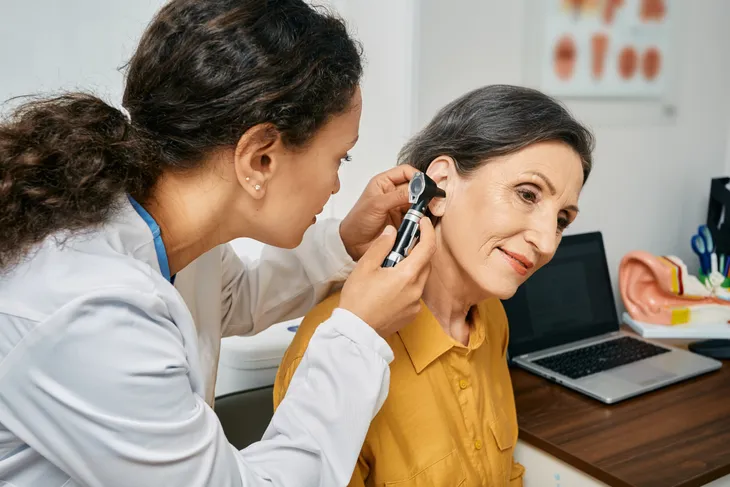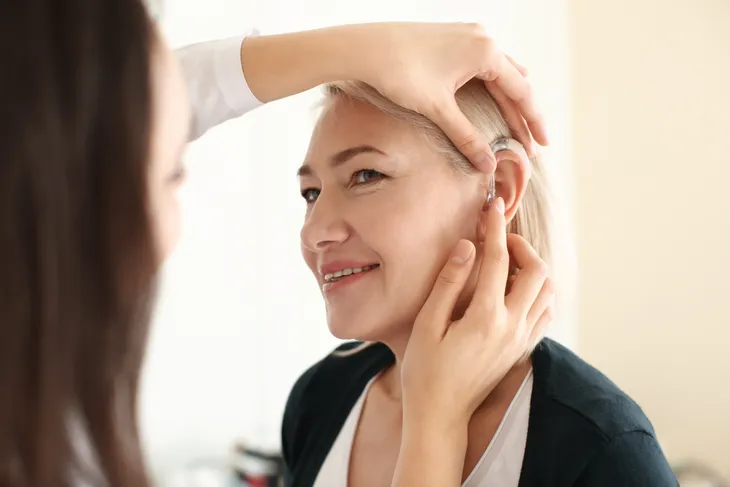- Hearing loss is a common problem often caused by noise, aging, disease, and family genetics.
- It can also be an extremely frustrating and isolating thing to go through, which is why many people turn to hearing aids.
- The technology behind hearing aids has come a long way, but it can still take quite a bit of time to adjust to this new device.
- Relying on family and friends can help, as well as making sure they fit properly, frequent use, and participating in conversations.
Hearing aids are a double edged sword. While they open up a whole new world of sounds for people struggling with hearing loss, they are also a big life change. You are now dependent on this wearable piece of technology. Whether it’s the first pair or simply an upgrade, a new set of hearing aids takes some time to get used to.
Eventually most people learn to embrace their hearing aids and today there are many different types of hearing aids to choose from, many of which have made leaps and bounds in terms of their comfort. However, they are still a major adjustment. To help make the transition a little easier, here are some on adjusting to a new pair of hearing aids…
Get Them Properly Fitted
While it’s now possible to purchase over-the-counter hearing aids, the downside is that there isn’t an audiologist there to make sure they are properly fitted. This is very important, especially during the initial adjustment period. Not only does it make them more comfortable, it makes them more effective, notes Consumer Reports.
“The fit should be comfortable from the beginning,” says Catherine Palmer, PhD, associate professor of communication science and disorders and otolaryngology at the University of Pittsburgh to the source. “That doesn’t mean you won’t notice that something’s in your ear – at least for the first few weeks – but it shouldn’t hurt.”
Wear Them Frequently
This might seem obvious, but during those first couple days it will be tempting to take your hearing aids out during moments of frustration or when it all just seems too overwhelming. The Cleveland Clinic warns not to only use hearing aids during social gatherings or public outings. Wear them at home, even when you’re alone. This will help build up a tolerance to everyday sounds and give your brain time to adjust.
“The more sound you hear in your environment, the better your brain will adapt to it,” explains audiologist Katie Hahn, AuD to the Cleveland Clinic. “Even if it’s just sounds at home, like the humming of your refrigerator or the doorbell, or the ding of your microwave — your brain is starting to adjust to those sounds.”
Know What’s Normal and What’s Not
When getting fitted for the hearing aids, have the specialist explain how the hearing aids work and what to expect. You’ll want to know what’s normal and what’s not because in the beginning there is a lot to adjust to. Basic things to know are how to put them in, take them out, clean them, and change the batteries.
There are some things that might make you want to take your hearing aids out or stop using them, but they are actually normal, explains WebMD. For example, a lot of people find their own voice sounds too loud. This is called the occlusion effect and can take some getting used to. Another common issue is background noise. “A hearing aid can pick up noises you don’t want to hear, along with ones you’re trying to tune into,” notes the source.
A whistling sound is feedback. It typically occurs when a hearing aid doesn’t fit properly, or if the ear is clogged with earwax or fluid. WebMD adds that a buzzing sound can happen when using a cell phone. As technology improves this happens less and less, but bringing your phone along to the fitting can help ensure the two will not interfere with each other.
Ask For Help
Even though hearing aids are a very personal device, you’ll need help from friends and family during the adjustment period. You’ll need their emotional support and just overall assistance in navigating how to communicate with hearing aids.
The Cleveland Clinic suggests asking loved ones to help by speaking slowly, face you when they’re speaking, and allow you to adjust the volume on shared devices like TVs and entertinament systems. “When people are talking really fast, it’s going to be harder for you to process that information, especially if there’s a hearing loss,” says Dr. Hahn to the source.
Try Communicating in Group Settings
It’s no secret that the world will sound much different with hearing aids. The best way to get adjusted is through exposure to new settings and surroundings. When you’re ready, try communicating in a group setting. Don’t try to pretend everything is normal, says WebMD. Be honest with the other people that you’re adjusting to a new device.
Another reason to head into group settings and not avoid them is because this is how to determine what adjustments need to be made. However, the Cleveland Clinic does warn it shouldn’t be rushed. Spend time wearing them at home first. The more they are used to these noises, the better the brain will be at hearing noises outside the home.
“We want people to remain connected and that’s a huge reason why people are fit with hearing aids,” says Dr. Hahn when talking to the source. “You want to experience as many environments as you can.”
Practice Listening to Voices
When a person starts wearing hearing aids for the first time, their brain needs time to relearn how to hear sounds again, particularly in this new fashion. During this time it can be hard to follow conversations or hear speech clearly, warns the Helping Me Hear website.
Your own voice is likely going to sound very strange so to help adjust, it might be a good idea to practice reading out loud. You can also try reading along to an audiobook. This “can help the language-hearing-and-interpreting part of the brain reassert itself,” explains the source.
Take Breaks
While it’s important to wear the hearing aids as much as possible in order to get used to them, it’s okay to take some breaks in the beginning. Wearing them for 18-hours a day right out of the gate is a lot. The Helping Me Hear website suggests starting with 8-hours a day, then working up to a full day.
Not only does it take some to get used to wearing a device in or on your ears, it’s also a lot of work for the brain and ears. This is why breaks are important. However, put them back in as soon as you’re ready. Eventually, you will get to a point where you’re wearing them for an entire day without ever wanting to take them out.
Try Online Hearing Aid Training
If you’re still having trouble understanding others, even after being properly fitted with new hearing aids, Consumer Reports suggests checking out some type of hearing aid training, such as auditory rehabilitation. Your audiologist can likely recommend sessions or classes.
These classes help with a range of hearing issues, including how to handle hearing loss, improve listening and communication skills, use hearing aids, and other helpful devices. Some classes or courses are free while others do cost money. Consumer Reports notes that most are under $100 and likely not covered under insurance.
Use Captions or Subtitles
If might seem counterintuitive to use captions or subtitles when wearing hearing aids — the device that helps a person hear better so they don’t need these aids, but according to the Cleveland Clinic, visual cues help the brain process sounds.
“Being able to read along while you’re hearing something helps fill in the blanks,” explains Dr. Hahn to the Cleveland Clinic. “The hearing system is very complex. So, if you can read along and hear it at the same time, you’re making that connection between what you hear and what you see.”
Set Realistic Expectations and Be Patient
From the loud noises, new noises, background noise, and sometimes buzzing noises, there’s a lot to get used to! WebMD reassures that feeling a little discouraged, frustrated, or impatient at times is normal. No one acclimatizes to hearing aids overnight. It takes time. Head into this new transition with that in mind.
Anticipate that they will likely feel a bit uncomfortable at first and it’ll be strange to hear so many new noises. Try not to get discouraged or stop using the hearing aid. “It may take several months, but with patience and time, you’ll adjust and get used to hearing more than you could before,” writes the source.
You should also keep in mind that people who are using hearing aids have some hearing loss or damage. Hearing aids cannot repair hearing. Their job is to act as a tool to amplify sound and speech to make it easier to understand. You’ll still need to be proactive and do some work to hear better.
When to Contact Your Audiologist
The first appointment with your audiologist shouldn’t be the last, notes WebMD. Book a follow-up visit to discuss how things are going and if there are any issues regarding fit or technical problems with feedback or volume. After a month or so, the hearing aids should feel natural. If they don’t, something may be wrong.
In the beginning, it can be hard to know what issues will get better with time and which ones require a visit to the audiologist. According to Dr. Hahn, the following is a list of reasons to go see an audiologist. Book an appointment if the hearing aids are causing pain, they aren’t staying inserted in the ear, sounds are coming through muffled or cutting in and out, or if the hearing aids aren’t holding a charge.
How to Know When to Get Hearing Aids
Hearing loss as we age is hard to avoid. It happens no matter what, but typically is a result of aging, genetics, family history, or noise exposure, explains Dr. Hahn to the Cleveland Clinic. This is where hearing aids come into the picture. Hearing aids can help people with mild to moderate hearing loss. How do you know if you qualify for this?
The nonprofit Hearing Loss Association of America (HLAA) provides a checklist to help people gauge when they need to go see an audiologist about hearing aids. Mild to moderate hearing loss is for anyone who has…
- Trouble understanding conversation in groups, with background noise, or when the person talking isn’t visible
- Trouble hearing on the phone
- You need to turn up the volume of the television, or radio loud enough for others to complain
- Your friends or family complain they often have to repeat themselves

